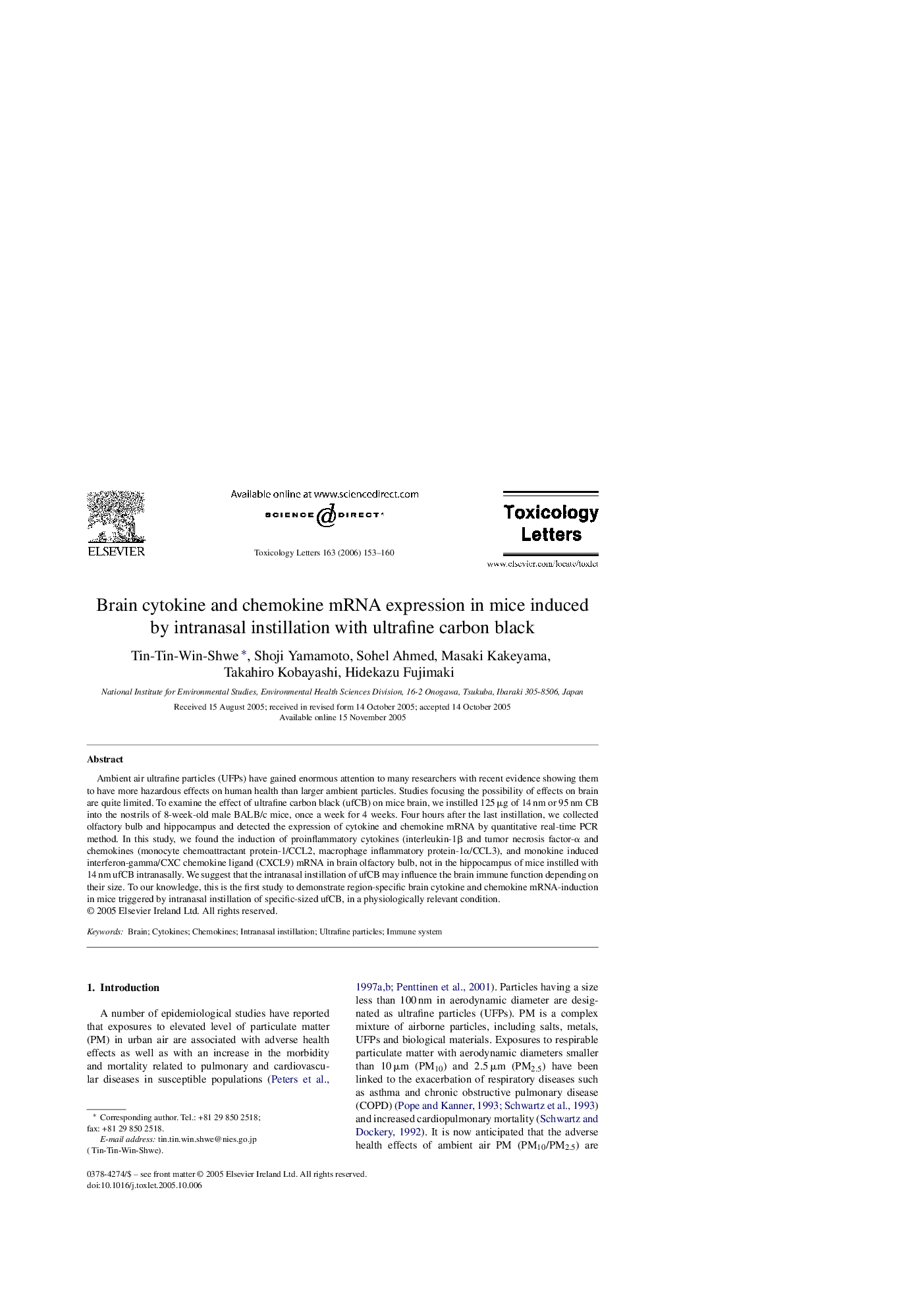| Article ID | Journal | Published Year | Pages | File Type |
|---|---|---|---|---|
| 2601978 | Toxicology Letters | 2006 | 8 Pages |
Ambient air ultrafine particles (UFPs) have gained enormous attention to many researchers with recent evidence showing them to have more hazardous effects on human health than larger ambient particles. Studies focusing the possibility of effects on brain are quite limited. To examine the effect of ultrafine carbon black (ufCB) on mice brain, we instilled 125 μg of 14 nm or 95 nm CB into the nostrils of 8-week-old male BALB/c mice, once a week for 4 weeks. Four hours after the last instillation, we collected olfactory bulb and hippocampus and detected the expression of cytokine and chemokine mRNA by quantitative real-time PCR method. In this study, we found the induction of proinflammatory cytokines (interleukin-1β and tumor necrosis factor-α and chemokines (monocyte chemoattractant protein-1/CCL2, macrophage inflammatory protein-1α/CCL3), and monokine induced interferon-gamma/CXC chemokine ligand (CXCL9) mRNA in brain olfactory bulb, not in the hippocampus of mice instilled with 14 nm ufCB intranasally. We suggest that the intranasal instillation of ufCB may influence the brain immune function depending on their size. To our knowledge, this is the first study to demonstrate region-specific brain cytokine and chemokine mRNA-induction in mice triggered by intranasal instillation of specific-sized ufCB, in a physiologically relevant condition.
